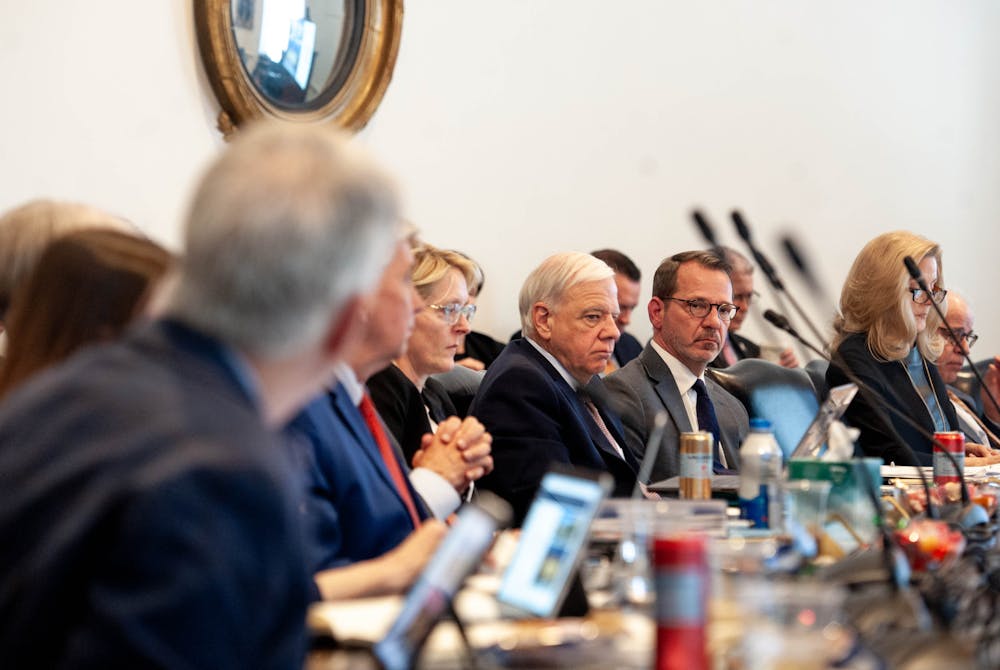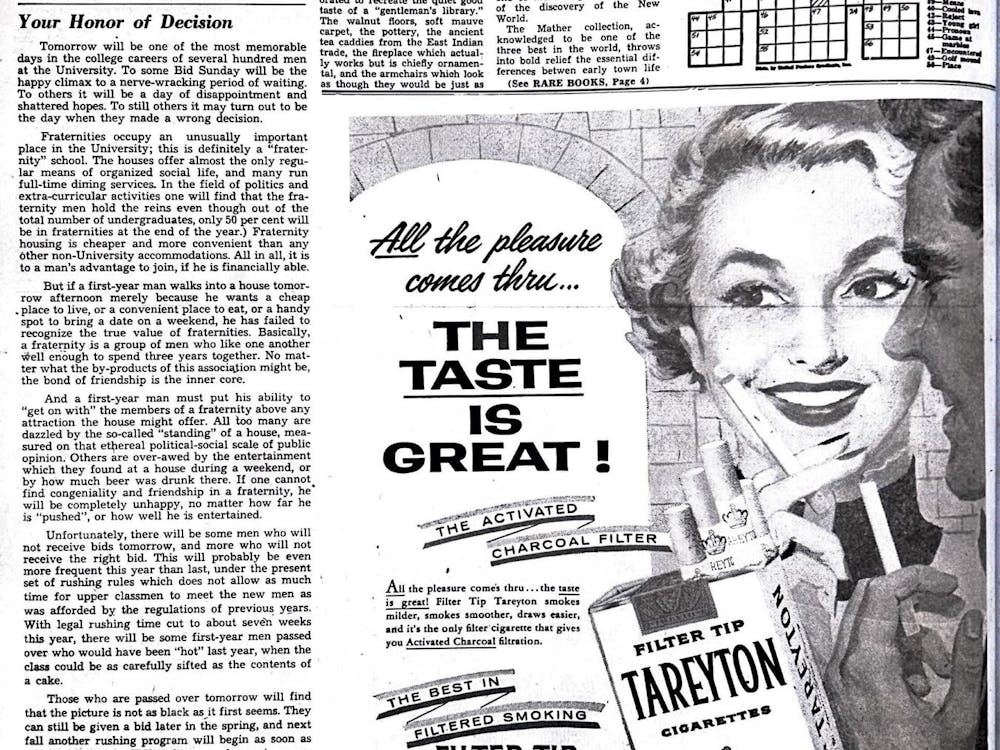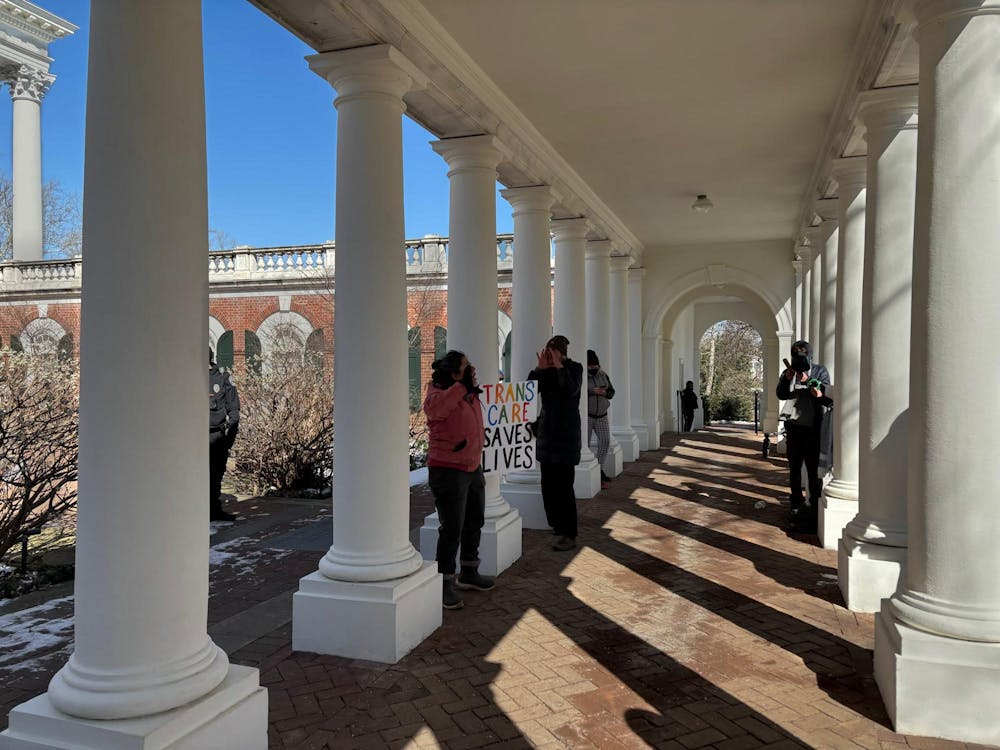The Board of Visitors’ Academic and Student Life Committee spoke on the recent U.Va. Apartheid Divest referendum — which calls on the University to submit itself to an external audit of its investments and divest from companies profiting from Israeli human rights violations — in its meeting Thursday evening. The Board also voted to approve new degree programs and discontinue ones with low student enrollment.
U.Va. Apartheid Divest referendum, announced at a Students for Justice in Palestine teach-in event Feb. 6, gained a spot on the ballot for the Spring 2024 University elections and passed with 67.87 percent of votes in favor. The divestment referendum received relatively significant engagement, with 30.4 percent of the student body casting a vote on this ballot measure.
The topic of the Israel-Hamas war emerged when Ian Baucom, executive vice president and University provost, discussed the importance of supporting University students who have been impacted by the war in Gaza during his remarks.
“There is a lot of pain in our community. Pain felt by our Jewish students. Pain felt by our Muslim students,” Baucom said. “We need to be free to express ourselves and we need to listen to the people we disagree with, and we need to … just care about them as people.”
Several Board members commented on the referendum and the University’s response to it following Baucom’s speech. Board member Douglas D. Wetmore said he received over 500 emails from parents and alumni concerned about the safety and treatment of Jewish students in response to the referendum.
“I think it's one of the most shameful things that's ever happened in the history of the University. It's a blatantly anti-semitic initiative,” Wetmore said. “I appreciate the comments of the Provost and the spirit in which they were delivered. But I think we need to be more forceful. We need to distance ourselves categorically from things like this.”
Board member Thomas A. DePasquale agreed that the University should take a firm stance in addressing the referendum, but stated that this was a form of protest that should be handled like student divestment demands from years past.
“I'm not so sure that when I read the divest demand that I agree with any of it, but I don’t know that I view it as student misconduct,” DePasquale said. “I’m not so sure that it in itself differs from any other student protests.”
In 1990, the Board of Visitors voted to sell its holdings in companies doing business with South Africa during the rule of its apartheid regime following student-led divestment initiatives.
Kenyon R. Bonner, new vice president and chief student affairs officer, also discussed his perspective on how the Israel-Hamas war has impacted University students.
“Many of our students — including our Palestinian, Israeli, Jewish and Muslim students and families — have been deeply affected by the violence in Gaza and Israel,” Bonner said. “We remain committed to supporting all of our students, responding to their concerns and facilitating opportunities for our students to engage with these issues in ways that support their mutual understanding, compassion for each other, learning, growth and sense of belonging.”
Baucom stated that the Board will continue dialogue surrounding the Israel-Hamas war in future meetings.
The Board also introduced Hamza Aziz, Honor Committee chair and fourth-year College student, to provide the Board with a report on the Honor system. Aziz discussed the impacts of the multi-sanction referendum that was passed last March.
“The multi-sanction system envisioned for decades has been successfully actualized this term. I'm confident it will only improve as the community grows more experienced in our sanctioning function,” Aziz said. “The system took effect last summer and since then the Committee has processed 70 cases of alleged honor violations to date.”
Board members voiced overwhelming support for the Honor Committee, praising the University’s unique practice of student self-governance at large.
The Board also voted in favor of a series of action items including the discontinuation of five degree programs and the introduction of two new degree programs.
The Board officially discontinued the Master of Arts in Slavic Languages and Literatures in the College and Graduate School of Arts & Sciences, as degree program enrollment was not meeting SCHEV program productivity standards.
SCHEV is Virginia’s coordinating agency for higher education which offers guidelines on whether to maintain a program based on the number of faculty members, number of student enrollments and the level of displayed student interest in the program.
The M.A. in Slavic Languages and Literatures program ceased admission in Fall 2023, and the Board’s vote marked the end of a longer discontinuation process.
The Board also discontinued four education specialist degree programs — Education Specialist in Higher Education, Education Specialist in Educational Psychology, Education Specialist in Counselor Education and Education Specialist in Special Education in the School of Education and Human Development — that received minimal student demand and currently has no students enrolled.
Jennifer Bair, associate dean for the social sciences and professor of sociology, also discussed University President Jim Ryan’s 2030 Plan during Thursday’s meeting as a fill-in for Christa D. Acompora, dean of the College and Graduate School of Arts and Sciences. Bair focused on the SuccessUVA initiative of the 2030 Plan which centers on improving advising resources for students and echoed concerns from December’s Board meetings that the College’s advising program is inadequate.
“This system of pre major advising that we have isn't working, at least not well enough for many of our students,” Bair said. “Our intention is to build a community of practice for advisors that includes devising shared goals for those advisors, offering them regular assessments and ensuring that they have access to professional development opportunities to support continual improvement.”
Bair said College administrators recently completed a comprehensive review of the College’s advising process and presented two of four potential advising systems to the Board — one which would involve connecting students with expert advisors, and another which would integrate pre-major advising into the Engagements program, part of the general education curriculum that places first-year students in a series of seminar-style classes.
The Academic and Student Life Committee will reconvene during the June Board of Visitors meetings.






